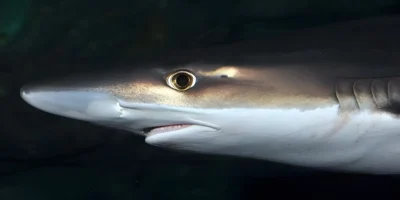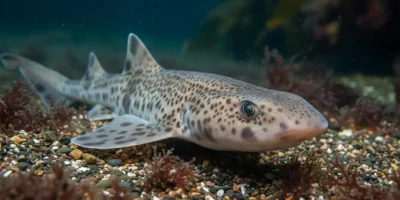They are the feared stars of movies like Jaws or Sharknado – but this year, sharks could be celebrated as heroes. Scientists have begun equipping these ocean predators with sensors to collect valuable data for hurricane forecasting.
Shark sensors: data hunters in the ocean
Researchers from the University of Delaware and the U.S. National Oceanic and Atmospheric Administration (NOAA) have equipped blue sharks and mako sharks with sensor tags. These measure the temperature and salinity of the Atlantic – two key factors in the formation and intensity of hurricanes. Normally, this information is provided by expensive underwater gliders – slowly and with great effort. The mobile, wide-ranging sharks, however, can cover vast ocean areas and deliver data that were previously hardly accessible.
“By attaching these sensors to sharks that travel long distances, we can monitor a much larger part of the ocean that would otherwise remain unobserved,” explains marine ecologist Aaron Carlisle of the University of Delaware.
Why water temperature drives hurricanes
Hurricanes draw their energy from warm water. Once surface temperatures rise above 27 degrees Celsius (80 Fahrenheit), water evaporates and releases large amounts of heat. This heat is transported into the atmosphere and provides fuel for the formation and intensification of storms. It is precisely this data that is crucial to predict the development of dangerous weather conditions at an early stage.
Proven technology, new helpers
NOAA has been using underwater gliders since 2014; they can reach depths of over 900 meters and take detailed measurements. But their range is limited. Sharks, on the other hand, dive and travel through vast ocean regions, making them valuable as flexible data providers. Similar approaches have existed for some time: in the Arctic and Antarctic, seals and narwhals are equipped with measuring devices, while dolphins and whales were even used for military purposes in the past.
Looking into the future
The current number of deployed sensors is still limited – partly due to the effects of the COVID-19 pandemic, which delayed the project. But researchers are convinced that sharks could play a key role in weather forecasting in the future. What was once seen as a nightmare figure in pop culture could thus prove to be an indispensable ally in the fight against natural disasters.






